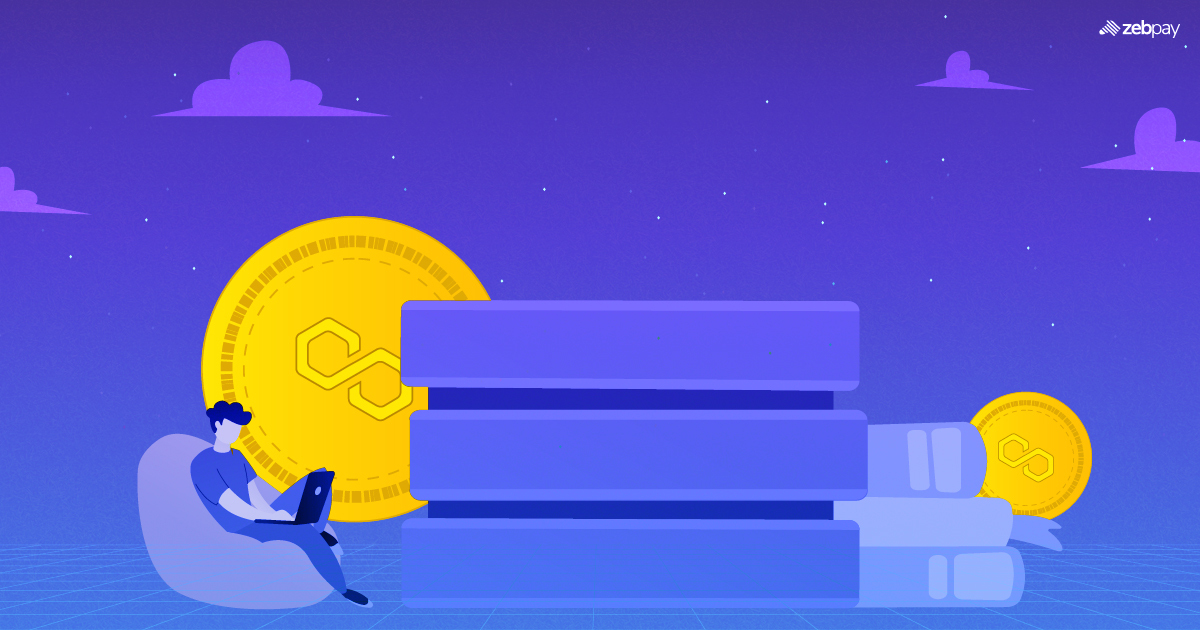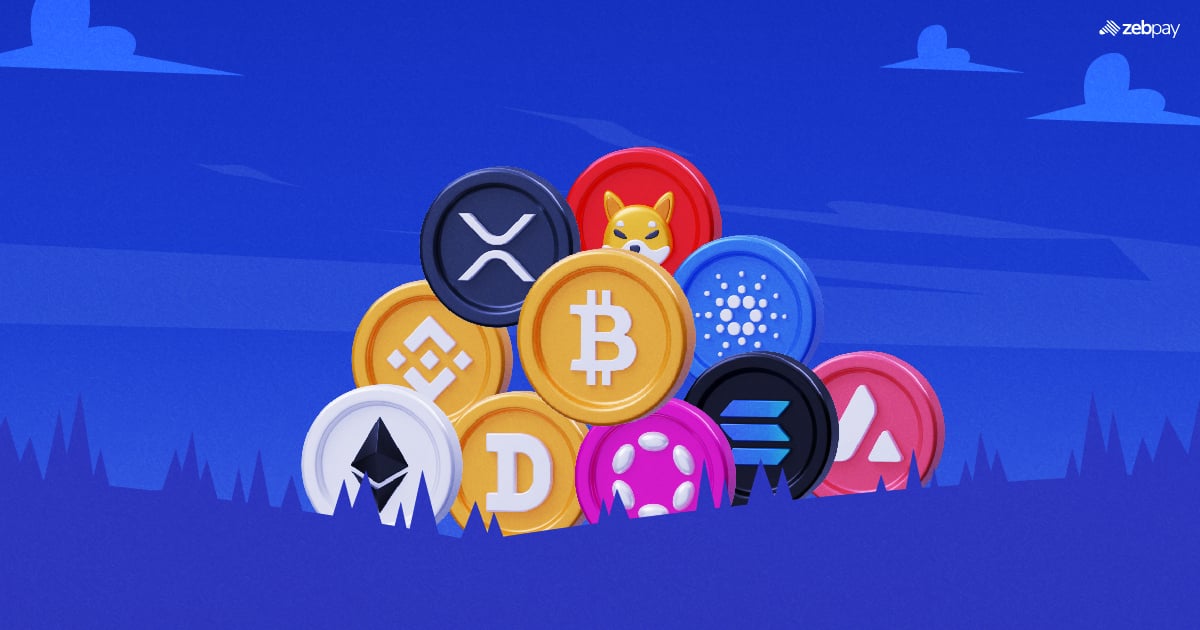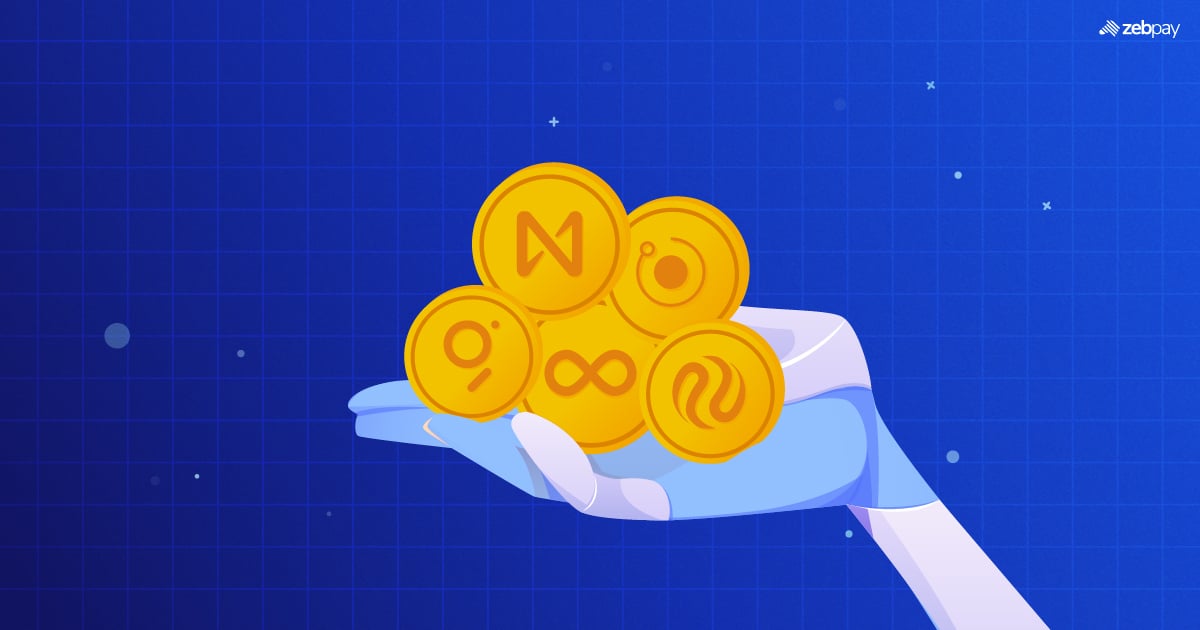The Polygon network is a layer-2 scaling network built on top of the base blockchain, Ethereum. It is an Ethereum-scaling blockchain that empowers developers to create interoperable and scalable decentralized applications (dApps). It has gained significant traction as it offers low transaction fees without compromising network security. It was one of the first crypto protocols to improve Ethereum’s performance through its scalability solutions. It was formerly known as Matic before rebranding in 2021, but it still retains its Matic crypto token, its native asset. It aims to improve Ethereum’s security, efficiency, and size and incentivize developers to create enticing dApps for the crypto market. Many industries are beginning to notice its benefits, including decentralized finance (DeFi), gaming, NFTs, and others.
Read more: What is Polygon (MATIC)
Decentralized Finance (DeFi) on Polygon
The Polygon network has the potential to make a significant impact in the DeFi sector. It is working on a mechanism to allow merchants to evaluate the credit ratings of users joining its network. It assesses the transaction history of users to come up with their credit ratings. The Polygon network has a total value locked (TVL) of almost $5 billion in DeFi. Its quick growth can be attributed to DeFi dApps. It has become one of the competitors to top blockchains such as Ethereum in terms of DeFi efficiency. It has maintained steady growth due to its adoption by the two significant DeFi protocols, Compound and Aave. Aave, a lending protocol, has over $1 billion locked up on Polygon markets. Its scalable and interoperable infrastructure enables users to interact across various DeFi protocols. It aims to become a base for all DeFi platforms.
Read more: How to Earn with Polygon (MATIC)
Non-Fungible Tokens (NFTs) on Polygon
Another vital Polygon use case is how it enables NFT trading. It offers low transaction fees for buying or selling NFTs. It is home to one of the most popular NFT marketplaces, OpenSea, which conducts loads of NFT trades. The Polygon network empowers users to create, purchase, or sell NFTs. It offers a broader reach for digital artists. Collectors can benefit from a protocol that is interoperable with multiple blockchains, increasing their chances of meeting more collectors to sell their NFTs. Every NFT collector on Polygon can earn more Matic tokens.
Blockchain Gaming on Polygon
Polygon launched Polygon Studios in 2021 to transition from Web2 to Web3 gaming. It focuses on providing a supportive platform for developers interested in creating Web3 games using Polygon. It can offer support from its community members, use marketing strategies, and gain investments. It is slowly becoming the top choice for game developers in blockchain gaming. It offers scaling capabilities for Web3 games to improve their speed and performance. It also facilitates the cost-effective and quick exchange of gaming NFTs. Some of the top games in Polygon include Sandbox, Aavegotchi, and Mojo Melee.
Decentralized Applications (DApps) on Polygon
Polygon can transform decentralized application development by addressing Ethereum’s scalability and interoperability issues. It is a layer-2 scaling solution and offers extensive tools for deploying dApps at faster deployment rates and lower costs. It uses side chains to evenly distribute transaction loads in dApps. The most popular blockchain for dApp deployment is the Ethereum network, but also has issues like high transaction costs and low transaction speeds. Polygon is a more efficient platform for developing dApps like decentralized exchanges (DEX). Some of the popular Polygon decentralized exchanges include Quickswap and Sushiswap. Polygon’s scalability solutions make it ideal for supply chain applications as they require low transaction costs and high throughput to enable efficient tracking and verification of goods.
Enterprise Solutions on Polygon

Enterprises that want to benefit from blockchain networks have to create private blockchains that are closed, unaudited, and lack decentralization. However, the gas fees are too high, and transaction speeds are low if they use a public blockchain like Ethereum. Hence, Polygon is ideal for enterprises as it offers a scalable infrastructure with low transaction costs without compromising security.
Another benefit for enterprises that Polygon offers is the tokenization of real-world assets. Tokenizing assets on Polygon is a revolutionary process, as it brings many benefits to the investment and asset management worlds. Tokenization enables enterprises to automate income distribution, provide liquidity for operations, and resolve property disputes. Tokenization allows assets to be divided into smaller parts and offers investors the opportunity to purchase a fraction of a share. This feature can prove beneficial in the asset management world.
Polygon also offers decentralized identification and authentication for enterprises. Polygon ID is a solution that helps with compliance as it employs zero-knowledge technology, which enables users to prove their identity without revealing sensitive information to intermediaries.
Read more: MATIC Price Prediction
Polygon as a Bridge to Other Networks
Interoperability is vital for any protocol to create a connected ecosystem where users can interact and seamlessly move crypto assets between blockchain networks. The Web3 landscape is becoming more complex with multi-chains and multi-layered applications. In this landscape, interoperability becomes a vital feature. Interoperability has become a significant issue for blockchain protocols due to their decentralization, and each network has different consensus mechanisms, token standards, and other protocols.
Blockchain bridges are applications that allow various blockchain protocols to interact with each other and facilitate crypto asset transfers. The Polygon Bridge was created for the smooth development of Ethereum applications by enabling the transfer of data and assets between applications on various chains. It provides a united interface for data and asset transfer, allowing developers to connect multiple chains and systems. It offers enterprises a framework to manage and integrate their data across various chains through a unified channel. This blockchain bridge uses Smart contracts to operate both on the Ethereum and Polygon networks to facilitate asset and data transfers between them.
The Polygon bridge can have a significant impact on DeFi. There is a need for interoperability between different crypto protocols due to the rising popularity of DeFi applications. This bridge enables users to move crypto assets between multiple DeFi applications seamlessly. This feature empowers users to access liquidity from various networks and makes it easy to create cross-chain DeFi protocols.
Read more: Future of Polygon (MATIC)
To stay up to date with the latest crypto news, visit ZebPay blogs. Click on the button below to trade on ZebPay.







